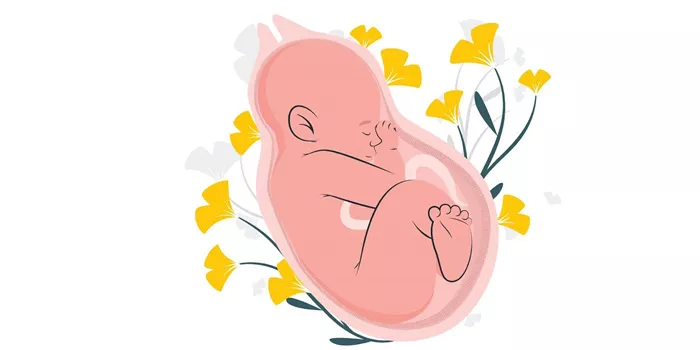Conception is a complex process that hinges on the timing of intercourse relative to ovulation. Many individuals and couples seeking to conceive wonder if there are specific days when getting pregnant is more likely. This article explores the concept of the fertile window, the factors influencing fertility, and the best practices for optimizing the chances of conception.
Introduction to Fertility and Conception
1. The Basics of Conception
Conception occurs when a sperm fertilizes an egg. This process involves several steps: ovulation, sperm reaching the egg, and successful fertilization. Timing plays a crucial role, as the egg and sperm must meet within a specific timeframe for conception to occur.
2. Understanding the Menstrual Cycle
The menstrual cycle is the monthly process that prepares the female body for pregnancy. It typically lasts about 28 days but can vary in length. The cycle is divided into several phases: the menstrual phase, follicular phase, ovulation, and luteal phase. Each phase plays a role in the timing of ovulation and fertility.
Identifying the Fertile Window
1. What is the Fertile Window?
The fertile window refers to the days in a menstrual cycle when conception is most likely to occur. This period includes the days leading up to and just after ovulation. The fertile window typically spans about six days: the five days before ovulation and the day of ovulation itself.
2. Timing of Ovulation
Ovulation is the release of a mature egg from the ovary, making it available for fertilization. In a standard 28-day cycle, ovulation generally occurs around day 14. However, the timing of ovulation can vary depending on the length of the menstrual cycle and other factors.
3. Lifespan of the Egg and Sperm
The egg is viable for fertilization for about 12 to 24 hours after ovulation. Sperm, on the other hand, can survive in the female reproductive tract for up to five days. This means that intercourse occurring in the days leading up to ovulation can still result in pregnancy.
Calculating the Fertile Window
1. Tracking Ovulation
To determine the fertile window, tracking ovulation is essential. Several methods can help identify ovulation:
Ovulation Predictor Kits (OPKs): These kits detect the surge in luteinizing hormone (LH) that precedes ovulation. A positive result indicates that ovulation is likely to occur within the next 12 to 36 hours.
Basal Body Temperature (BBT): Monitoring basal body temperature involves measuring temperature each morning before getting out of bed. A slight increase in BBT indicates that ovulation has occurred.
Cervical Mucus Monitoring: Observing changes in cervical mucus can also help identify ovulation. Around ovulation, cervical mucus becomes clear and stretchy, resembling egg whites.
2. Calculating Optimal Days for Conception
Based on the timing of ovulation, the most fertile days are the five days before ovulation and the day of ovulation itself. Engaging in intercourse during this window increases the likelihood of sperm meeting the egg.
Factors Affecting the Fertile Window
1. Cycle Length Variability
Menstrual cycle lengths can vary, affecting the timing of ovulation. For example, in a 21-day cycle, ovulation may occur around day 7. Understanding the length of your cycle helps in estimating the fertile window more accurately.
2. Irregular Cycles
Individuals with irregular menstrual cycles may find it more challenging to predict ovulation. In such cases, using ovulation tracking methods and consulting with a healthcare provider can provide additional insights and support.
3. Health and Lifestyle Factors
Factors such as stress, illness, and lifestyle changes can impact ovulation and the timing of the fertile window. Maintaining a healthy lifestyle and managing stress can support regular ovulation and enhance fertility.
The Role of Frequency and Timing
1. Frequency of Intercourse
Regular intercourse throughout the cycle increases the chances of conception. Aim for intercourse every two to three days, focusing on the fertile window to maximize the likelihood of sperm meeting the egg.
2. Timing of Intercourse
While the fertile window is crucial, it is also important to consider the timing of intercourse. Having intercourse a few days before ovulation ensures that sperm are present when the egg is released.
see also: How to Choose the Right IVF Center: A Guide for Intended Parents
Challenges and Considerations
1. Understanding Fertility Issues
Some individuals may experience fertility issues that impact the timing of ovulation and conception. Conditions such as polycystic ovary syndrome (PCOS), endometriosis, or thyroid disorders can affect regular ovulation and fertility.
2. Seeking Professional Help
If conception is challenging despite timing intercourse correctly, consulting a fertility specialist may be beneficial. A specialist can conduct a thorough evaluation, provide personalized recommendations, and offer treatments to support fertility.
Conclusion
In summary, there are specific days in the menstrualcycle when the chances of getting pregnant are higher. The fertile window includes the days leading up to and including ovulation. Tracking ovulation, understanding the lifespan of the egg and sperm, and maintaining regular intercourse during this window are key strategies for optimizing the chances of conception.
By accurately identifying the fertile window and addressing factors that impact fertility, individuals and couples can enhance their chances of achieving a successful pregnancy. Whether through tracking methods, lifestyle adjustments, or seeking professional advice, understanding and managing the timing of conception is essential for those on the journey to parenthood.



























